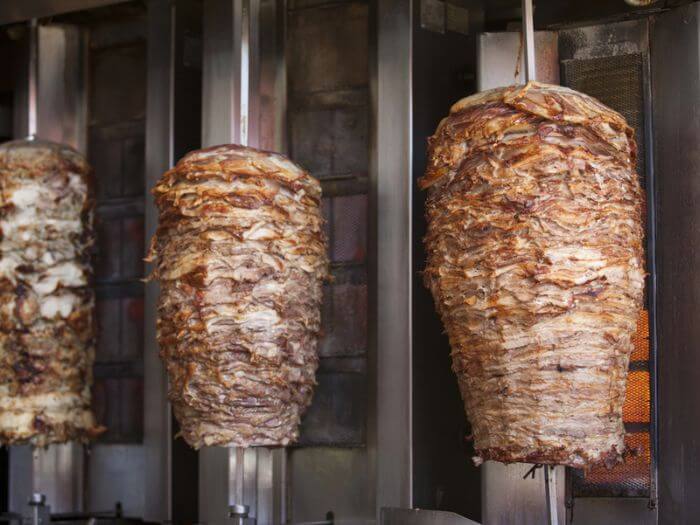English pronunciation can get tricky. And because it’s a language that has borrowed many terms from other languages, even some native English speakers may find themselves scratching their heads over the pronunciation of some terms.
In this post, I’ve put together a list of 83 commonly mispronounced English words. For most terms, I’ll explain what the cause of the problem is and give you the correct pronunciation. I’ll also provide the definition and an example sentence.
Ready to discover commonly mispronounced words in English? Let’s begin!
Table of Contents
Commonly Mispronounced English Words From French
1. Colonel
- Correct Pronunciation: /ˈkɜːnəl/ (KE – nul)
- Common Mispronunciation: /ˈkəʊləʊnəl/ (KO – loh – nul)
- Definition: A high-ranking officer in the army or air force.
- Example: The colonel gave the order to advance.
- Why It’s Mispronounced: The word comes from the French “coronel” and the Italian “colonnello.” The “o” is often pronounced /əʊ/ in English, so that’s what might create confusion.
2. Queue
- Correct Pronunciation: /kjuː/ (kyoo)
- Common Mispronunciation: /kwiːjuː/ (kwee – yoo)
- Definition: A line of people, cars, etc. waiting for something or to do something
- Example: Long queues are building up on the city's exit roads.
- Why It’s Mispronounced: The sound-spelling relationship in this word is terrible. Really terrible. Because it's a loan word from French.
3. Macaron
- Correct Pronunciation: /ˌmækəˈrɒn/ (mack – uh – RON)
- Common Mispronunciation: /ˈmækərun/ (mack – uh – ROON)
- Definition: A French sweet made with egg white, sugar and almonds.
- Example: She picked a box of macarons in various flavours from the bakery.
- Why It’s Mispronounced: Some English speakers confuse “macaron” with “macaroon,” a different type of coconut-based dessert.

4. Cache
- Correct Pronunciation: /kæʃ/(cash)
- Common Mispronunciation: /keɪʃ/ (kaysh) or /kætʃ/ (catch)
- Definition: A collection of items stored in a hidden or inaccessible place. In computing, “cache” refers to hardware or software that stores data.
- Example: Clear your browser cache regularly.
- Why It’s Mispronounced: It’s a French loanword. The spelling may mislead many into pronouncing it as “cachet.”
5. Coup
- Correct Pronunciation: /kuː/ (koo)
- Common Mispronunciation: /koʊp/ (kope) or /kʊp/ (kup)
- Definition: A sudden change of government that is illegal and often violent.
- Example: Independent analysts identified widely differing reasons for the coup.
- Why It’s Mispronounced: This comes from French, a language whose sound-spelling relationship is sometimes even worse than English!
6. Rendezvous
- Correct Pronunciation: /ˈrɒndɪvuː/ (RON – de – voo)
- Common Mispronunciation: /ˈrendezvəs/ (REN – dez – voos)
- Definition: A meeting at an agreed time and place.
- Example: They agreed to meet at the usual rendezvous.
- Why It’s Mispronounced: It’s a French word and, like many French words, the spelling is misleading.
7. Cliché
- Correct Pronunciation: /kliːˈʃeɪ/ (klee – SHAY)
- Common Mispronunciation: /ˈklɪʃe/ (KLEE – sha)
- Definition: An overused phrase or opinion that lacks originality.
- Example: Avoid clichés in your writing.
- Why It’s Mispronounced: The “é” should be pronounced as “ei” but many learners of English forget to do that.
8. Café
- Correct Pronunciation: /ˈkæfeɪ/(KA – fay)
- Common Mispronunciation: /ˈkæfe/ (KAF – e)
- Definition: A place where you can buy drinks and simple meals.
- Example: A café opened in town.
- Why It’s Mispronounced: Because of the same reason “cliché” is mispronounced.
9. Genre
- Correct Pronunciation: /ˈʒɒnrə/ (SION – ruh)
- Common Mispronunciation: /ˈdʒenre/ (JEN – reh)
- Definition: A category of artistic composition.
- Example: Romance is my favourite genre of film.
- Why It’s Mispronounced: Italian speakers have trouble with this word. In Italian, the sound-spelling relationship is more straightforward than it is in English.
10. Coup de grâce
- Correct Pronunciation: /ˌkuːdəˈɡrɑːs/(koo – de – GRAHS)
- Common Mispronunciation: /ˌkuːpdə ˈɡrɑːs/(koop – de – GRASS) or /ˌkuːpdəˈɡreis/ (koop – de – GRAYS)
- Definition: A final blow or shot given to kill a wounded person or animal.
- Example: He delivered the coup de grâce to his opponent’s argument.
11. Lingerie
- Correct Pronunciation: /ˈlɒnʒəri/ (LAHN – zher – ee)
- Common Mispronunciation: /ˈlɪndʒəˌri/ (LIN – juh – ree)
- Definition: Women's underwear and nightclothes.
- Example: She wore a transparent sheath with some hard black lingerie underneath.
- Why It’s Mispronounced: The word is French, and the English spelling suggests a different pronunciation.
12. Clandestine
- Correct Pronunciation: /klænˈdestɪn/ (klan – DES – tin)
- Common Mispronunciation: /ˈklændəstaɪn/ (KLAN – de – stine)
- Definition: Kept secret or done secretively, especially because illicit.
- Example: They had a clandestine meeting to discuss the plan.
13. Facade
- Correct Pronunciation: /fəˈsɑːd/(fuh – SAHD)
- Common Mispronunciation: /ˈfækæd/(fuh – CAD)
- Definition: The front of a building.
- Example: The facade is built of stone and has arched windows.
- Why It’s Mispronounced: French word. The “c” is soft, but the spelling may suggest a hard “c” sound to English speakers.
14. Bourgeois
- Correct Pronunciation: /ˈbʊəʒwɑː/ (BOOR – zhwah) or /ˌbʊəˈʒwɑː/ (boor – ZHWAH)
- Common Mispronunciation: /ˈbərgwɑː/ (BUR – gwah)
- Definition: Relating to the middle class.
- Example: The first bourgeois revolution in this country ended in 1814.
- Why It’s Mispronounced: The French origin and spelling create difficulty for many English speakers.
15. Camaraderie
- Correct Pronunciation: /ˌkæməˈrɑːdəri/ (ka – muh – RAH – duh – ree)
- Common Mispronunciation: /ˌkæməˈredəri/ (ka – muh – RED – uh – ree)
- Definition: A feeling of friendship and trust among people who work or spend a lot of time together.
- Example: There was little camaraderie and cohesion among troops.
- Why It’s Mispronounced: This doesn’t look like an English word at all. That’s why it creates confusion.
16. Ragout
- Correct Pronunciation: /ræˈɡuː/ (rah – GOO)
- Common Mispronunciation: /ˈræɡaʊt/ (rag – OUT)
- Definition: A hot dish of meat and vegetables boiled together with various spices
- Example: We love roast pork, gulash, deer stew, lentils and mushroom ragout.
- Why It’s Mispronounced: The spelling suggests an “out” sound at the end, but it is a French word where the “ou” is pronounced /uː/.
Commonly Mispronounced English Words From Greek & Latin
17. Affidavit
- Correct Pronunciation: /ˌæfɪˈdeɪvɪt/ (af – i – DAY – vit)
- Common Mispronunciation: /ˌæfɪˈdævɪt/ (af – i – DAV – it)
- Definition: A written statement used as evidence in court.
- Example: The affidavit stated the officer required hospital treatment.

18. Gyro
- Correct Pronunciation: /ˈjiːroʊ/ (YEE – roh)
- Common Mispronunciation: /ˈɡaɪroʊ/ (GY – roh) or /ˈɡɪroʊ/ (GI – roh)
- Definition: A Greek dish made from meat cooked on a vertical rotisserie.
- Example: She ordered a lamb gyro for lunch.
- Why It’s Mispronounced: The word’s Greek origin and its unusual spelling make it challenging for English speakers.
19. Asterisk
- Correct Pronunciation: /ˈæstərɪsk/ (AS – tuh – risk)
- Common Mispronunciation: /ˈæstərɪks/ (AS – tuh – riks)
- Definition: an asterisk ( * ) is the symbol placed next to a particular word or phrase to make people notice it or to show that more information is given in another place.
- Example: Place an asterisk next to the items on sale.
20. Et cetera
- Correct Pronunciation: /ˌet ˈsetərə/ (et – SET – er – uh) or /ˌɪt ˈsetərə/ (it – SET – er – uh)
- Common Mispronunciation: /ˌek ˈsetərə/ (ex – SET – er – uh)
- Definition: A Latin phrase used after a list to show that there are other things that you could have mentioned.
- Example: “The box was filled with pens, paper, notebooks, et cetera.”
- Why It’s Mispronounced: The mistake may come from the similarity to “ex,” a common English prefix that comes from Latin
21. Aegis
- Correct Pronunciation: /ˈiːdʒɪs/ (EE – jis)
- Common Mispronunciation: /ˈeɪdʒɪs/ (AY – jis)
- Definition: If someone is under the aegis of somebody/something, they get the protection or support of a particular organization or person.
- Example: The project is under the aegis of the UN.
- Why It’s Mispronounced: This is a term that’s derived from Greek. The unusual letter combinations throw off many English speakers, including me!
22. Victuals
- Correct Pronunciation: /ˈvɪtəlz/ (VIT – uhlz)
- Common Mispronunciation: /ˈvɪktʃuːəlz/ (VIK – choo – uhls)
- Definition: An old-fashioned way of saying “food and drinks.”
- Example: They packed their victuals for the journey.
- Why It’s Mispronounced: The spelling is non-intuitive!
23. Antennae (plural form of “antenna”)
- Correct Pronunciation: /ænˈteniː/ (an – TEN – ee)
- Common Mispronunciation: /ænˈtenə/ (an – TEN – uh)
- Definition: The pair of long thin parts on the heads of some insects.
- Example: Some insects use their antennae to sense their surroundings.
- Why It’s Mispronounced: The plural form “antennae” can be confused with its singular form, “antenna.” This makes it tricky also for native speakers of English.
24. Algae
- Correct Pronunciation: /ˈældʒiː/ (AL – jee)
- Common Mispronunciation: /ˈælɡeɪ/ (AL – gay) or /ˈælɡaɪ/ (AL – guy)
- Definition: Simple plants that have no real leaves, stems or roots, and that grow in or near water.
- Example: The pond was covered in green algae.
- Why It’s Mispronounced: The “ae” ending often confuses many speakers.

25. Aerosol
- Correct Pronunciation: /ˈeərəsɒl/ (AIR – uh – sol)
- Common Mispronunciation:/ˈærsɒl/ (AR – sol)
- Definition: A liquid kept under pressure in a metal container and released as a spray.
- Example: An aerosol foam shampoo is useful for cleaning small areas.
- Why It’s Mispronounced: This word is based on the Greek word areo (air, atmosphere, gases) and “solution”, a word of Latin origin.
26. Nymph
- Correct Pronunciation: /nɪmf/ (nimf)
- Common Mispronunciation: /nɪnf/(ninf) or /nɪmpf/ (ninpf) or /nɪmp/ (ninp)
- Definition: A mythological spirit of nature imagined as a beautiful woman living in rivers and woods.
- Example: The nymph is in general very beautiful and physically perfect.
27. Epitaph
- Correct Pronunciation: /ˈepɪtɑːf/ (EP – ih – taf)
- Common Mispronunciation: /ˈepɪtɑːp/ (EP – ih – tap)
- Definition: Words written (or spoken) in memory of a person who has died, especially as an inscription on a tombstone.
- Example: The epitaph on his gravestone was very moving.
- Why It’s Mispronounced: Some learners might pronounce “ph” as a /p/ sound.
28. Preternatural
- Correct Pronunciation: /ˌpriːtərˈnætʃərəl/ (PREE – ter – NATCH – ur – uhl)
- Common Mispronunciation: /ˌprɪtərˈnætʃərəl/ (PRIT – er – NATCH – ur – uhl)
- Definition: Extraordinary.
- Example: Long ago, in a time forgotten, a preternatural event threw the seasons out of balance.
- Why It’s Mispronounced: The prefix “pre-” is pronounced with a long “ee” sound.
Why do so many English words come from French and Latin? Find out in my post – where did English come from?
Commonly Mispronounced English Words From Italian
29. Espresso
- Correct Pronunciation: /eˈspresəʊ/ (es – PRES – oh)
- Common Mispronunciation: /ekˈspresəʊ/ (ex – PRES – oh)
- Definition: A type of strong coffee brewed by forcing steam through finely-ground coffee beans.
- Example: She ordered a double shot of espresso.
- Why It’s Mispronounced: Most likely because of the word “express,” which has an “x” sound in it.
30. Minestrone
- Correct Pronunciation: /ˌmɪnəˈstrəʊni/ (min – uh – STROH – nee)
- Common Mispronunciation: /ˌmaɪnəˈstrɒni/ (mine – uh – STRON – ee)
- Definition: An Italian soup made with vegetables and pasta (or rice).
- Example: My Italian grandmother makes the best minestrone in the world.
- Why It’s Mispronounced: Native English speakers may think “mine” at the beginning of “minestrone” is pronounced as the word “mine.”
31. Gnocchi
- Correct Pronunciation: If you want to pronounce this like Italians do, then the right pronunciation is /ˈɲɒki/ The problem is that the sound /ɲ/ doesn’t exist in English! So you can keep saying it as /ˈnɒki/ 🙂
- Definition: Italian dumplings made from potato, flour, and eggs.
- Example: “I’ll have some gnocchi with pesto, thanks!”

32. Bruschetta
- Correct Pronunciation: /bruˈsketə/ (broo – SKET – uh)
- Common Mispronunciation: /bruˈʃetə/ (broo – SHET – uh)
- Definition: An Italian dish consisting of grilled bread rubbed with garlic and topped with olive oil, tomatoes, and basil.
- Example: Let’s have bruschetta as a starter.
- Why It’s Mispronounced: English speakers often pronounce the “ch” as /ʃ/. “Bruschetta” is an Italian word. In Italian “ch” is always pronounced as /k/.
33. Segue
- Common Mispronunciation: /seɡ/ (seg) or /seɡju:/ (SEG – yoo)
- Correct Pronunciation: /ˈseɡweɪ/ (SEG – way)
- Definition: To move smoothly from one song, subject, place, etc. to another.
- Example: The film then segues into the September 11 attacks.
Commonly Mispronounced English Words From Other Languages
34. Açai
- Correct Pronunciation: /æˈsaɪiː/ (ah – SIGH – ee) or /æsaɪˈiː/ (ah – sigh – EE)
- Common Mispronunciation: /əˈkaɪ/ (uh – KAI) or /ˈəkeɪ/ (ah – KAY)
- Definition: A type of South American palm tree that produces small dark fruit that can be eaten or made into juice.
- Example: I love acai bowls for breakfast.
- Why It’s Mispronounced: It’s confusing because the word is of Brazilian Portuguese origin. The letter “ç” doesn’t exist in English.
35. Tabbouleh
- Correct Pronunciation: /təˈbuːleɪ/ (tuh – BOO – lay)
- Common Mispronunciation: /təˈbʊli/ (tuh – BOO – lee)
- Definition: A Middle Eastern salad made from finely chopped parsley, tomatoes, mint, bulgur, and seasoned with olive oil, lemon juice, and salt. Yummy!
- Example: I had lots of tabbouleh when I visited Turkey.
- Why It’s Mispronounced: The spelling of this word can create some confusion.

36. Cocoa
- Correct Pronunciation: /ˈkəʊkəʊ/ (KOH – koh)
- Common Mispronunciation: /kʌˈkʌəʊ/ (ka – KA – oh)
- Definition: Dark brown powder made from cocoa beans.
- Example: I always add a spoonful of cocoa to my hot milk.
- Why It’s Mispronounced: Non-native speakers may be unsure how to pronounce this word as it doesn’t look “English” enough.
37. Tortilla
- Correct Pronunciation: /tɔːrˈtiːjə/ (tor – TEE – yah)
- Common Mispronunciation: /tɔːrˈtɪlə/ (tor – TIL – luh)
- Definition: A Mexican / Spanish dish.
- Example: I love tacos with freshly made tortillas.
- Why It’s Mispronounced: The double “l” is pronounced as a “y” sound in Spanish. This is not so intuitive for English speakers.
Commonly Mispronounced English Words Native Speakers Can't Say
38. Especially
- Correct Pronunciation: /ɪˈspeʃəli/ (ih – SPESH – uh – lee)
- Common Mispronunciation: /ɪksˈpeʃəli/ (eks – SPESH – uh – lee)
- Definition: Used to single out one person, thing, or situation above all others.
- Example: Women's health is pretty complicated, especially during pregnancy.
- Why It’s Mispronounced: Some English speakers sometimes include an initial “ex-” sound. This may be because they get confused with similar words like “explicit.”
39. Hyperbole
- Correct Pronunciation: /haɪˈpɜːbəli/ (high – PER – buh – lee)
- Common Mispronunciation: /haɪˈpɜːrbɔl/ (high – PER – bowl) or /hɪˈpɜːrbəl/ (hi – PER – bull)
- Definition: a way of speaking or writing that makes something sound better, more exciting, more dangerous, etc. than it really is.
- Example: It's not hyperbole but actual reality.
- Why It’s Mispronounced: One reason why many mistake this word may be because of the spelling.
40. Gif
- Correct Pronunciation: /dʒɪf/ (jif)
- Common Mispronunciation: /gɪf/ (gif)
- Definition: Gif is the abbreviation for ‘Graphic Interchange Format’. This is a type of computer file that contains images and is used especially to make them appear to move
- Example: She shared a funny GIF in the group chat.
- Why It’s Mispronounced: Well, actually, there’s an ongoing debate on how to pronounce this word.
41. Mischievous
- Correct Pronunciation: /ˈmɪstʃɪvəs/ (MIS – chuh – vus)
- Common Mispronunciation: /mɪsˈtʃiːviəs/ (mis – CHEE – vee – us)
- Definition: A mischievous person enjoys playing tricks and annoying people.
- Example: During the interview, the actress said she enjoys playing the character's mischievous side.
- Why It’s Mispronounced: Many speakers might add the “i” sound because of the influence of similarly spelt words like “devious” or “obvious.”
42. February
- Correct Pronunciation: /ˈfebrueri/ (FEB – rooa -ry)
- Common Mispronunciation: /ˈfebjueri/ (FEB – yoo – air – y)
- Definition: The second month of the year.
- Example: My birthday is in February.
- Why It’s Mispronounced: The “u” is often pronounced /juː/ in English. That doesn’t help when pronouncing “February”.

43. Otolaryngology
- Correct Pronunciation: /ˌəʊtəʊlærɪŋˈɡɒlədʒi/ (oh – toh – lair – in – GOL – oh – jee)
- Common Mispronunciation: Many different ways. This word can give you a real headache!
- Definition: The study of the diseases of the ear, nose and throat.
- Example: He’s studying otolaryngology.
44. Pedagogy
- Correct Pronunciation: /ˈpedəɡɒdʒi/ (PED – uh – go – jee)
- Common Mispronunciation: /ˈpedəɡɒgi/ (PED – uh – go – gee)
- Definition: The method and practice of teaching, especially as an academic subject or theoretical concept.
- Example: The university offers a course on modern pedagogy for aspiring teachers.
- Why It’s Mispronounced: The “g” is pronounced as a soft “g” (/dʒ/). Even native speakers get this wrong sometimes.
45. Awry
- Correct Pronunciation: /əˈraɪ/ (uh – RYE)
- Common Mispronunciation: /ˈɔːri/(AW – ree)
- Definition: If something goes awry, it does not happen in the way you planned it.
- Example: Should we really feel shame over one small thing going awry?
- Why It’s Mispronounced: “Aw” is often pronounced as /ˈɔː/ (e.g. awesome, awe). This is why even native English speakers sometimes mispronounce this word.
Commonly Mispronounced English Words – Proper Nouns

46. Worcestershire
- Correct Pronunciation: /ˈwʊstərʃɪr/ (WUSS – ter – sheer)
- Common Mispronunciation: /ˈworsestʃaɪr/ (WOR – sest – shire)
- Definition: A county in England. It’s also a popular sauce.
- Example: Add a splash of Worcestershire sauce for extra flavour.
- Why It’s Mispronounced: I mean, look at the spelling of this word!
47. Tommy Hilfiger
- Correct Pronunciation: /ˈtɒmi ˈhɪlˌfɪɡər/ (TAW – mee HILL – fig – ur)
- Common Mispronunciation: /ˈtɒmi ˈhɪlˌfaɪdʒər/ (TAW – mee HILL – fie – jer) or /ˈtɒmi ˈhaɪlˌfɪdʒər/ (TAW – mee HILE – fig – ur)
- Definition: An American fashion brand founded by designer Tommy Hilfiger.
- Example: Check you these Tommy Hilfiger jackets. They look cool!
48. Norwich
- Correct Pronunciation: /ˈnɒrɪdʒ/ (NOR – idj)
- Common Mispronunciation: /ˈnɒrwɪtʃ/ (NOR – witch)
- Definition: A city in eastern England.
- Example: Shall we go to Norwich for the weekend?
- Why It’s Mispronounced: The “w” is silent and the ending “ch” is pronounced as /dʒ/. Tricky stuff for learners of English.
49. Greenwich
- Correct Pronunciation: /ˈɡrenɪtʃ/ (GREN – itch) or /ˈɡrenɪdʒ/ (GREN – idj)
- Common Mispronunciation: /ˈɡrenwɪtʃ/ (GREN – witch)
- Definition: A district of south-east London.
- Example: I’ve been to Greenwich twice.
- Why It’s Mispronounced: Similar to “Norwich,” the “w” is silent.
50. Niagara (Falls)
- Correct Pronunciation: /naɪˈæɡərə/ (ny – AG – ruh)
- Common Mispronunciation: /niˈɑːɡərə/ (nee – AH – guh – ruh)
- Definition: A group of massive waterfalls on the Niagara River.
- Example: I visited Niagara Falls last year.

Commonly Mispronounced English Words With Silent Letters
51. Whole
- Correct Pronunciation: /həʊl/(hole)
- Common Mispronunciation: /whəʊl/ (whole – with the “w” pronounced)
- Definition: Full, complete.
- Example: The whole procedure took almost three hours.
- Why It’s Mispronounced: Many English learners see the “w” and think it should be pronounced.
52. Listen
- Correct Pronunciation: /ˈlɪsn/ (LIS – n)
- Common Mispronunciation: /ˈlɪsten/ (LIS – ten)
- Definition: To pay attention to somebody/something that you can hear.
- Example: Please listen to me.
- Why It’s Mispronounced: Many English learners see the “t” and think it should be pronounced.
53. Subtle
- Correct Pronunciation: /ˈsʌtl/ (SUT – ul)
- Common Mispronunciation: /ˈsʌbtl/ (SUB – tul)
- Definition: Not easy to notice.
- Example: I gave him a subtle hint about what I'd like as a present.
- Why It’s Mispronounced: The “b” is silent.
54. Debut
- Correct Pronunciation: /ˈdeɪbjuː/ (DAY – byoo) or /ˈdebjuː/ (DEB – yoo)
- Common Mispronunciation: /ˈdebjuːt/ (DEB – yoot) or /deˈbut/ (de – BOOT)
- Definition: The first public appearance of a performer or sports player.
- Example: She made her acting debut in a small theatre.
- Why It’s Mispronounced: The silent “t” at the end confuses many non-native English speakers.
55. Chassis
- Correct Pronunciation: /ˈʃæsi/ (SHAS – ee)
- Common Mispronunciation: /ˈtʃæsis/ (CHAS – iss)
- Definition: The base frame of a vehicle.
- Example: The chassis was a straight tubular steel space frame.
- Why It’s Mispronounced: Confusion over the “ch” sound and the silent “s.”

56. Hierarchy
- Correct Pronunciation: /ˈhaɪərɑː(r)ki/ (HIGH – uh – ra(r) – kee)
- Common Mispronunciation: /ˈhaɪrɑːrki/ (HIGH – rar – kee) or /ˈhierɑːrki/ (HIE – er – ar – kee)
- Definition: A system in which people or things are arranged according to their importance.
- Example: There are typically several operational plans in the planning document hierarchy.
- Why It’s Mispronounced: The second “r” is silent. This throws off some learners of English.
57. Larva
- Correct Pronunciation: /ˈlɑːvə/ (LAR – vuh)
- Common Mispronunciation: /ˈlɑːrvɑː/ (LAR – vah)
- Definition: an insect at the stage when it has just come out of an egg and looks like a short fat worm.
- Example: The caterpillar is the larva of a butterfly.
- Why It’s Mispronounced: The “r” is silent.
58. Almond
- Correct Pronunciation: /ˈɑːmənd/ (AH – mund)
- Common Mispronunciation: /ˈælmənd/ (AL – mund)
- Definition: A type of nut.
- Example: Almond milk is a popular dairy alternative among vegans.
- Why It’s Mispronounced: The “l” is often mistakenly pronounced.
59. Biscuit
- Correct Pronunciation: /ˈbɪskɪt/ (BIS – kit)
- Common Mispronunciation: /ˈbɪskwuɪt/ (BIS – kwoo – it)
- Definition: A small, typically round cake of bread. Americans call it “cookie.”
- Example: I love chocolate biscuits!
- Why It’s Mispronounced: The second “i” is silent.
60. Juice
- Correct Pronunciation: /dʒuːs/ (jooss)
- Common Mispronunciation: /dʒuːɪs/ (JOO – iss)
- Definition: A liquid that is naturally contained in fruit or vegetables, or a drink made from this liquid.
- Example: Fresh orange juice for breakfast – I can’t live without it!
- Why It’s Mispronounced: The “i” is silent.
61. Island
- Correct Pronunciation: /ˈaɪlənd/ (EYE – lund)
- Common Mispronunciation: /ˈaɪslənd/ (EYE – sland)
- Definition: A piece of land surrounded by water.
- Example: They spent their vacation on a tropical island.
- Why It’s Mispronounced: The “s” in “island” is silent.
62. Salmon
- Correct Pronunciation: /ˈsæmən/ (SAM – un)
- Common Mispronunciation: /ˈsælmən/ (SAL – mon)
- Definition: A type of fish
- Example: Grilled salmon is my favorite dish!
- Why It’s Mispronounced: The “l” is silent, but many speakers pronounce it because they see it in the spelling.
63. Depot
- Correct Pronunciation: /ˈdepəʊ/ (DEP – oh)
- Common Mispronunciation: /ˈdepəʊt/ (DEP – oht)
- Definition: A place where large amounts of equipment, food, or other goods are stored until needed.
- Example: Vehicle storage is distributed between the three depots.
- Why It’s Mispronounced: The “t” is silent, but the spelling leads many to pronounce it.

64. Duvet
- Correct Pronunciation: /duːˈveɪ/ (doo – VAY)
- Common Mispronunciation: /ˈduːvet/ (DOO – vet) or /ˈdjuːvet/ (DYOO – vet)
- Definition: A soft, flat bag filled with down, feathers, wool, or a piece of synthetic fabric. A duvet is used on a bed as a blanket.
- Example: She bought a new duvet for the winter.
- Why It’s Mispronounced: The word is borrowed from French, The silent “t” at the end and the word stress on the second syllable often tricks non-native speakers of English.
Commonly Mispronounced English Words Due To Word Stress
65. Photography
- Correct Pronunciation: /fəˈtɒɡrəfi/ (fuh – TOG – ruh – fee)
- Common Mispronunciation: /fətɒˈɡrʌfi/ (fuh – to – GRAW – fee)
- Definition: The art or practice of taking and processing photos.
- Example: My best friend took a course in photography to improve his skills.
- Why It’s Mispronounced: I’ve heard learners misplace the stress when pronouncing this word. This is likely because of the influence of their first language.
66. Comfortable
- Correct Pronunciation: /ˈkʌmftəbəl/ (KUMF – tuh – bul) or /ˈkʌmfətəbl/ (KUMF – uh – tuh – bul)
- Common Mispronunciation: /kəʊmfəʊrtˈeibəl/ (kum – FORT – able)
- Definition: Providing relaxation. Free from stress or discomfort.
- Example: The new sofa is so comfortable
- Why It’s Mispronounced: Because the word ends in “table” some non-native English speakers mistakenly pronounce it as the word “table.”
67. Accessory
- Correct Pronunciation: /əkˈsesəri/ (ak – SESS – uh – ree)
- Common Mispronunciation: /ætʃeˈsəri/ (atch – eh – SOR – ee)
- Definition: A thing that can be added to something else to make it more useful or attractive.
- Example: She wore a matching hat and scarf as accessories to her outfit.
68. Jewellery
- Correct Pronunciation: /ˈdʒuːəlri/ (JOO – ul – ree)
- Common Mispronunciation: /dʒuːeˈleri/ (joo – uh – LER – ee)
- Definition: Decorative items such as rings, necklaces, or bracelets.
- Example: My mom received a beautiful piece of jewellery for her birthday.
- Why It’s Mispronounced: Many learners of English mistakenly make an extra vowel sound between “jewel” and “lery.” This is probably because of the spelling.
69. Necessary
- Correct Pronunciation: /ˈnesəsəri/ (NESS – uh – sair – ee)
- Common Mispronunciation: /nəˈsesəri/ (neh – SES – sair – ee) or /nəsəˌseri/ (ness – uh – SAIR – ee)
- Definition: If something is necessary, it’s needed.
- Example: It is necessary to submit the form before the deadline.
- Why It’s Mispronounced: In some Latin-based languages (e.g. Italian, Spanish), the stress of this word is not on the first syllable. In English, it is.
Commonly Mispronounced English Words With Confusing Spelling

70. Plait
- Correct Pronunciation: /plæt/ (plat)
- Common Mispronunciation: /pleɪt/(plate)
- Definition: A long piece of hair divided into three parts and twisted together.
- Example: She wore her hair in a long plait down her back.
- Why It’s Mispronounced: The word is spelt similarly to “plate.”
71. Viscount
- Correct Pronunciation: /ˈvaɪkaʊnt/ (VY – count)
- Common Mispronunciation: /ˈvɪskaʊnt/ (VIS – count)
- Definition: A British nobleman ranking above a baron and below an earl.
- Example: His inherited title is Viscount and the title was created in 1957.
- Why It’s Mispronounced: Quite obvious why, isn’t it?
72. Cupboard
- Correct Pronunciation: /ˈkʌbərd/ (KUB – erd)
- Common Mispronunciation: /ˈkʌpbɔːrd/ (KUP – board)
- Definition: A cabinet or small closet used for storing food, dishes, or other kitchen items.
- Example: The entrance was concealed behind a cupboard..
- Why It’s Mispronounced: “Board” in “cupboard” is not pronounced as /bɔːrd/. Sorry!
73. Pronunciation
- Correct Pronunciation: /prəˌnʌnsiˈeɪʃən/ (pro – NUN – see – AY – shun)
- Common Mispronunciation: /prəˌnaʊnseʃən/ (pro – NOUN – se – shun) or /prəˌnʌnseʃən/ (pro – NUN – se – shun)
- Definition: The way in which a word is spoken.
- Example: Her pronunciation of French words is nearly flawless.
- Why It’s Mispronounced: I’ve heard learners of English mispronounce this word many times. It’s because the verb form is “pronounce” (/prəˈnaʊns/), but the noun drops the “ou” sound. The syllables “ci” and “a” are tricky too. The correct way to pronounce them is /sieɪ/.
74. Accurate
- Correct Pronunciation: /ˈækjʊrət/ (AK – yuh – rut)
- Common Mispronunciation: /ˈækjʊreit/ (AK – yuh – rate)
- Definition: If something it’s accurate, it means it’s correct in all details.
- Example: The projected database fails to produce accurate results under such circumstances.
- Why It’s Mispronounced: Some learners mistakenly think “rate” in “accurate” is pronounced /reit/.
75. Certificate
- Correct Pronunciation: /sərˈtɪfɪkət/ (ser – TIF – i – kit)
- Common Mispronunciation: /sərˈtɪfɪkeɪt/ (ser – TIF – i – kate)
- Definition: An official document that proves that something is true.
- Example: I’m studying to get an English language certificate.
- Why It’s Mispronounced: The final “ate” is often mistakenly pronounced like the verb ending “ate” (/eɪt/), rather than the schwa sound (/ət/).
76. Ostrich
- Correct Pronunciation: /ˈɒstrɪtʃ/ (OS – trich)
- Common Mispronunciation: /ˈɒstrɪk/ (OS – trick)
- Definition: A large flightless bird native to Africa.
- Example: The ostrich is the largest living bird in the world.
- Why It’s Mispronounced: The “ch” at the end is pronounced /tʃ/, similar to “witch.” Many may mistakenly pronounce it as a “k” sound.

77. Draught
- Correct Pronunciation: /drɑːft/ (draft)
- Common Mispronunciation: /drɔːɡht/ (drawght) or /drɔːt/ (drot)
- Definition: A current of cool air in a room.
- Example: A cold draught of air blew in from the open window.
78. Supposedly
- Correct Pronunciation: /səˈpəʊzɪdli/(suh – POHZ – id – lee)
- Common Mispronunciation: /səˈpəʊsəbli/ (suh – POHS – uh – blee)
- Definition: An adverb meaning “according to what is generally assumed or believed, without conclusive evidence.”
- Example: These creatures were supposedly over three meters tall.
- Why It’s Mispronounced: Many people mistakenly replace the “d” with a “b” sound.
79. Albeit
- Correct Pronunciation: /ɔːlˈbiːɪt/ (awl – BEE – it)
- Common Mispronunciation: /ˈʌlbeit/ (UL – bait)
- Definition: A formal conjunction meaning “even though,” or “although.”
- Example: This book is fairly competent albeit conventional and basic.
- Why It’s Mispronounced: Non-native English speakers whose first language has a more straightforward sound-spelling relationship (e.g. Italians) may pronounce this word as it’s spelt.
80. Suite
- Correct Pronunciation: /swiːt/ (sweet)
- Common Mispronunciation: /suːɪt/ (soo – EET)
- Definition: A set of rooms in a hotel.
- Example: The hotel offered us a luxury suite.
- Why It’s Mispronounced: Misinterpretation of the spelling.
81. Suit
- Correct Pronunciation: /suːt/ (soot)
- Common Mispronunciation: /sjuːt/ (syoot) or /swiːt/ (sweet)
- Definition: A set of clothes made of the same fabric.
- Example: The president of our country always wears a dark blue suit.
- Why It’s Mispronounced: Many learners of English get tricked by the spelling of this word.
82. Stomach
- Correct Pronunciation: /ˈstʌmək/ (STUM – uk)
- Common Mispronunciation:/ˈstʌmətʃ/ (STUM – utch)
- Definition: The organ where food goes when you eat it.
- Example: Some nutrients are destroyed or compromised by stomach acids.
- Why It’s Mispronounced: The “ch” at the end is pronounced /k/ like in “cat,” not as /tʃ/ like in “church.”
83. Enough
- Correct Pronunciation: /ɪˈnʌf/ (ih – NUFF)
- Common Mispronunciation: /eˈnoug/ (eh – NOUG)
- Definition: as many or as much as somebody needs or wants
- Example: Do you have enough time for me today?
- Why It’s Mispronounced: The sound-spelling of this word has the power of giving a headache to many non-native English speakers.
FAQs About Commonly Mispronounced English Words
What Are The 10 Most Mispronounced Words In English?
The 10 most mispronounced words in English are:
1) February
2) Worcestershire
3) Especially
4) Bruschetta
5) Colonel
6) Et cetera
7) Hyperbole
8) Pedagogy
9) Victuals
10) Mischievous
What Words Are Easily Mispronounced?
Some easily mispronounced words are: especially, espresso, queue, hyperbole, mischievous, colonel, pedagogy, viscount, and segue.
What's A Simple Word That People Keep Mispronouncing?
An example is “February” which should be pronounced FEB – rooa -ry and not FEB – yoo – air – y.
Some more examples are words like “espresso” and “especially” which are pronounced “es” at the beginning, not “ex”.
What Everyday Word Is Most Often Pronounced Incorrectly?
February should be pronounced FEB – rooa -ry and not FEB – yoo – air – y.
Mastering The Most Commonly Mispronounced English Words
Well done for making it to the end of this long list of commonly mispronounced English words.
I hope I’ve inspired you to explore even more words that you find hard to pronounce!
If you want to continue improving your English pronunciation, check out these posts:
You may also want to consider taking your English learning journey to the next level.
I believe in the power of story, so you can check out the StoryLearning method, which will help you practise and perfect your pronunciation even more through engaging short stories in English you can enjoy!

Olly Richards
Creator of the StoryLearning® Method
Olly Richards is a renowned polyglot and language learning expert with over 15 years of experience teaching millions through his innovative StoryLearning® method. He is the creator of StoryLearning, one of the world's largest language learning blogs with 500,000+ monthly readers.
Olly has authored 30+ language learning books and courses, including the bestselling "Short Stories" series published by Teach Yourself.
When not developing new teaching methods, Richards practices what he preaches—he speaks 8 languages fluently and continues learning new ones through his own methodology.










































